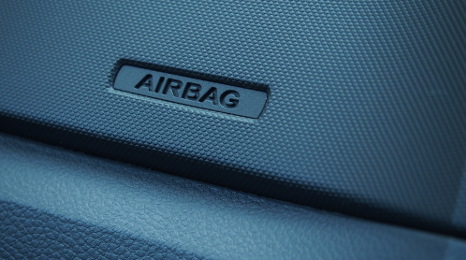Senators ask Takata to recall all airbags

By subscribing, you agree to receive communications from Auto Remarketing and our partners in accordance with our Privacy Policy. We may share your information with select partners and sponsors who may contact you about their products and services. You may unsubscribe at any time.
WASHINGTON, D.C. –
Two members of the U.S. Senate Committee on Commerce, Science, and Transportation continued their quest for automotive safety by sending a letter to a Takata executive requesting that the company “voluntarily recall all vehicles containing Takata airbags.”
This request was made by Sen. Richard Blumenthal of Connecticut and Sen. Edward Markey of Massachusetts, citing a recent National Highway Traffic Safety Administration investigation into an apparent Takata side airbag explosion in a 2015 Volkswagen Tiguan in St. Louis in June.
At the time of this writing, VW Group of America and Tesla Motors are the only two automakers in the U.S. utilizing Takata airbags that have not announced any Takata airbag-related recalls.
In the letter sent on Thursday and addressed directly to TK Holdings’ executive vice president of North America Kevin Kennedy, Blumenthal and Markey point out the specific nature of the incident as one of the major reasons they believe Takata should recall all of its airbags.
“This is the first incident reported in a VW, the first incident reported in a side airbag, and – most importantly, the first involving the newest models of Takata airbags,” the signed letter states. “This directly undercuts Takata’s continued insistence – despite growing evidence to the contrary – that the flaws in its airbag inflators are limited to prior designs in older model cars and only present when the airbags have prolonged exposure to extremely humid conditions.”
The senators request that they receive a response from Takata by Sept. 3. You can read the letter in its entirety here.
Subscribe to Auto Remarketing to stay informed and stay ahead.
By subscribing, you agree to receive communications from Auto Remarketing and our partners in accordance with our Privacy Policy. We may share your information with select partners and sponsors who may contact you about their products and services. You may unsubscribe at any time.
Karl Brauer, senior analyst for Kelley Blue Book, provided Auto Remarketing with the following comment on the situation.
“The senators’ suggestion that every Takata airbag should be recalled may ultimately prove wise, but it’s a bit premature to take that position right now,” Brauer said. “The malfunction of the Volkswagen Tiguan’s side airbag could indicate a larger problem, or it could have been a one-off circumstance that doesn’t represent a systemic defect across all side airbags. The problem for Takata is a history of defective airbags, which can leave even the most optimistic person wondering how wide the company’s flawed designs stretch.”
That bit of doubt in the minds of automakers is certainly apparent. In a recent report from Reuters, it was announced that Toyota Motor Corp. has plans to purchase 13 million airbag inflators from Nippon Kayaku Co., a smaller parts manufacturer in Japan. According to the report, Toyota is utilizing the second-tier source as an attempt to reduce its risk from the inflators supplied by Takata.
Akshay Anand, an analyst with KBB, also says that it’s getting to the point where these types of measures have to be taken if the problems are reoccurring.
“While recalling every vehicle with Takata components may seem like a tall task, the reality is that as the recalls expand in volume, we’re at the point where these issues need to be corrected as soon as possible,” Anand said. “Takata has been more cooperative recently than they were for months and months when the investigations started, but lives are potentially at stake. As a result, governing bodies may feel they need to be harsh or over-the-top in order to get the issue fully resolved, and it’s tough to blame them for that.”


